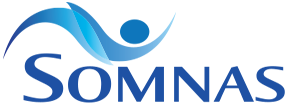Unveiling the Truth About Over-the-Counter Sleep Aids: Efficacy, Safety, and Alternatives
- Imtiaz Ahmad MD, MPH, FCCP
- CPAP & Sleep Therapy, Sleep, Sleep & Health, Sleep & Lifestyle, Sleep Diagnostics
- Doxepin, Melatonin, sleep aid

Table of Contents
Common OTC Sleep Aids and Their Mechanisms of Action
The primary categories of OTC sleep aids include:
Antihistamines: These medications work by blocking histamine, a neurotransmitter that promotes wakefulness. Examples include diphenhydramine (commonly known as Benadryl) and doxylamine succinate (Unisom). These antihistamines have sedative effects, but their long-term use for sleep is questionable. Moreover, these medications can cause dry mouth, constipation, and urinary retention, especially in older adults.
Melatonin: A naturally occurring hormone that regulates sleep-wake cycles, melatonin supplements are marketed to promote sleepiness and improve sleep quality. While melatonin is generally considered safe, it’s important to note that its efficacy can vary from person to person. Additionally, excessive use may disrupt the body’s natural production.
Herbal Supplements: Various herbal remedies, such as valerian root and lavender, are often touted for their sleep-inducing properties.
Doxepin: A Low-Dose Antidepressant for Sleep : Doxepin, an old tricyclic antidepressant, has found a new role in low doses for the treatment of insomnia. Sold as Silenor, it targets histamine receptors to induce drowsiness. However, caution is advised, as side effects may include dry mouth, constipation, and blurred vision. It is not recommended for individuals with certain medical conditions.
CBD: Exploring Cannabidiol for Sleep : Cannabidiol (CBD), derived from the cannabis plant, has gained popularity for its potential relaxing effects. While some studies suggest CBD may help with sleep, the evidence is still in its early stages. Concerns about the purity and regulation of CBD products also exist, making it important to choose reputable brands.
Some of the commonly known and popular OTC sleep aids include:
- Melatonin Supplements: Melatonin is a hormone that helps regulate the sleep-wake cycle. It’s available in various forms, including tablets, gummies, and liquids.
- Diphenhydramine (Benadryl): Diphenhydramine is an antihistamine commonly used in allergy medications. Its sedative effects make it a component of some OTC sleep aids.
- Doxylamine (Unisom): Similar to diphenhydramine, doxylamine is an antihistamine found in certain OTC sleep aids like Unisom.
- Valerian Root: Valerian root is an herbal supplement believed to have mild sedative effects. It is available in various forms, including capsules and teas.
- ZzzQuil: ZzzQuil is an OTC sleep aid that often contains diphenhydramine as the active ingredient. It is marketed specifically for its sleep-inducing properties.
- Advil PM and Tylenol PM: These pain relievers combine analgesics (ibuprofen or acetaminophen) with an antihistamine (usually diphenhydramine) to address pain and induce sleep.
- Sominex: Sominex is another OTC sleep aid that commonly contains diphenhydramine as its active ingredient.
- Alteril: Alteril is a sleep aid that typically combines ingredients such as melatonin, L-tryptophan, and valerian root.
- ZZZquil PURE Zzzs: This is another product by the makers of ZzzQuil, featuring different formulations that may include melatonin and other herbal ingredients.
Efficacy of OTC Sleep Aids
Safety Considerations
Alternative Approaches to Sleep Enhancement
Before resorting to OTC sleep aids, it’s essential to address potential underlying causes of sleep disturbances. Stress, anxiety, and poor sleep habits can significantly impact sleep quality. Lifestyle modifications, such as establishing a regular sleep schedule, creating a relaxing bedtime routine, and avoiding caffeine and alcohol before bed, can make a substantial difference.
If sleep problems persist despite lifestyle changes, consulting a Sleep Medicine specialist is recommended. They can assess the underlying cause of your insomnia and recommend appropriate treatment options, which may include cognitive behavioral therapy or prescription medications.
Recommendations for Safe and Effective Use
Adhere to recommended dosages: Never exceed the recommended dosage of any OTC sleep aid, as this can increase the risk of side effects and potential overdose.
Avoid long-term use: OTC sleep aids are intended for short-term use, typically up to two weeks. Prolonged use can lead to dependence and diminishing effectiveness.
Be mindful of interactions: Disclose any medications or supplements you are taking to your healthcare provider, as OTC sleep aids can interact with certain drugs, potentially causing adverse reactions.
Conclusion
QUESTIONS ABOUT A SLEEP ISSUE? LET’S TALK.
Imtiaz Ahmad, MD, MPH, FCCP
Dr. Imtiaz Ahmad is a highly qualified physician, Board Certified in Pulmonary and Sleep Medicine. He has received advanced training from some of the most prestigious institutions, including Harvard University, Cornell University, State University of New York at Brooklyn, and the University of Mississippi. SOMNAS is a medical facility that is committed to improving and maintaining the health of patients with sleep disorders. The expert team at SOMNAS is known for their compassionate and high-quality care. They offer unparalleled treatment and care to patients on the Gulf Coast of Florida, ensuring a better and healthier life for them.
Job Title: Board Certified in Pulmonary Medicine


